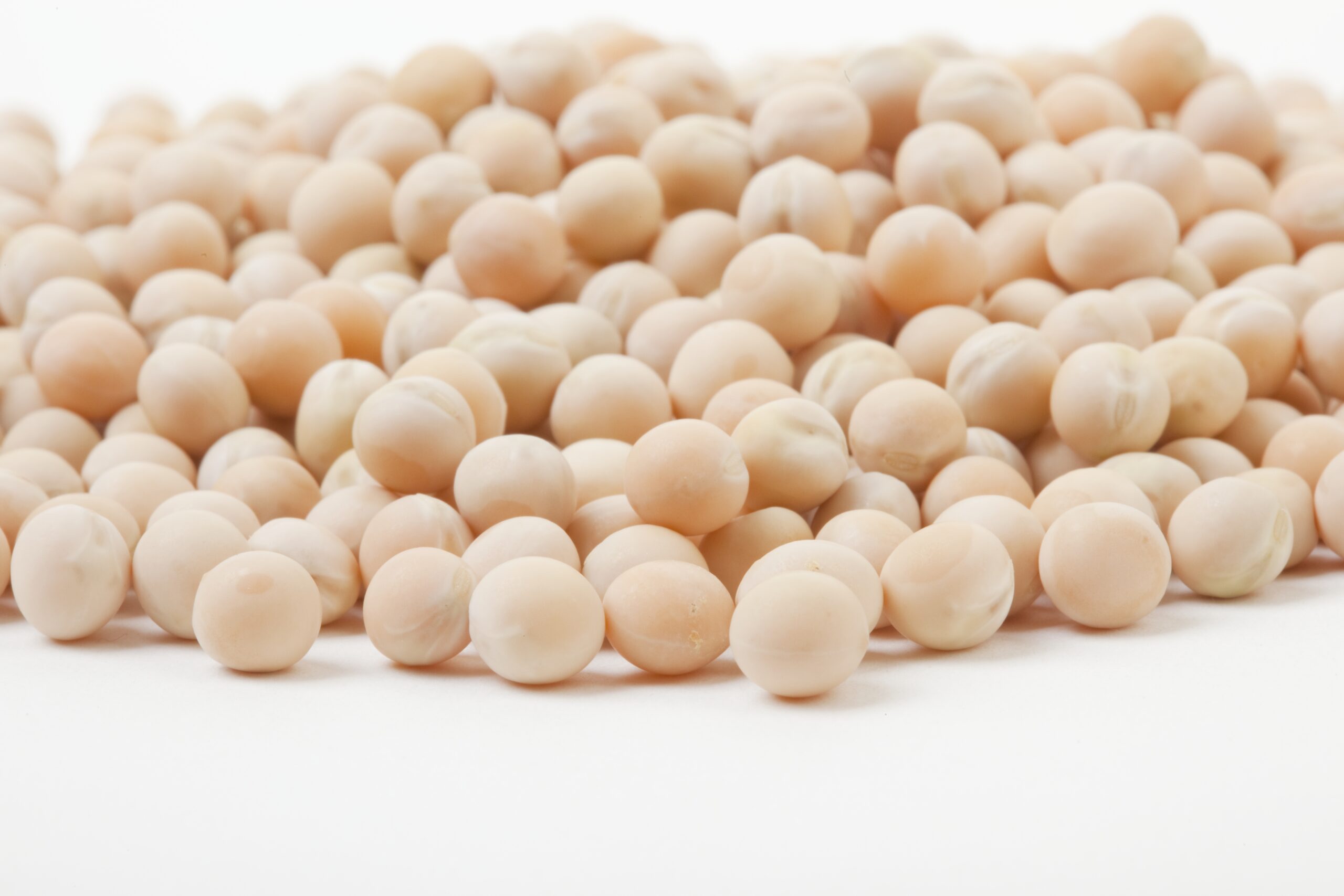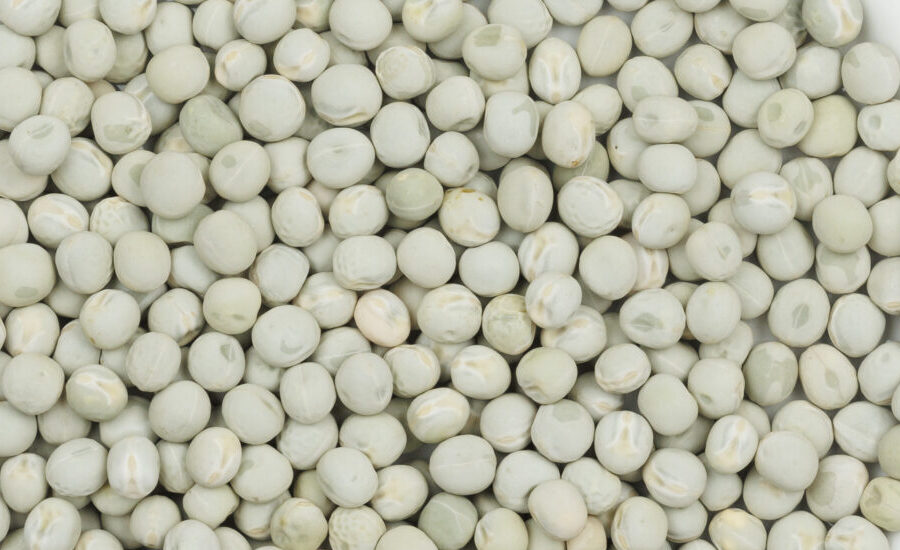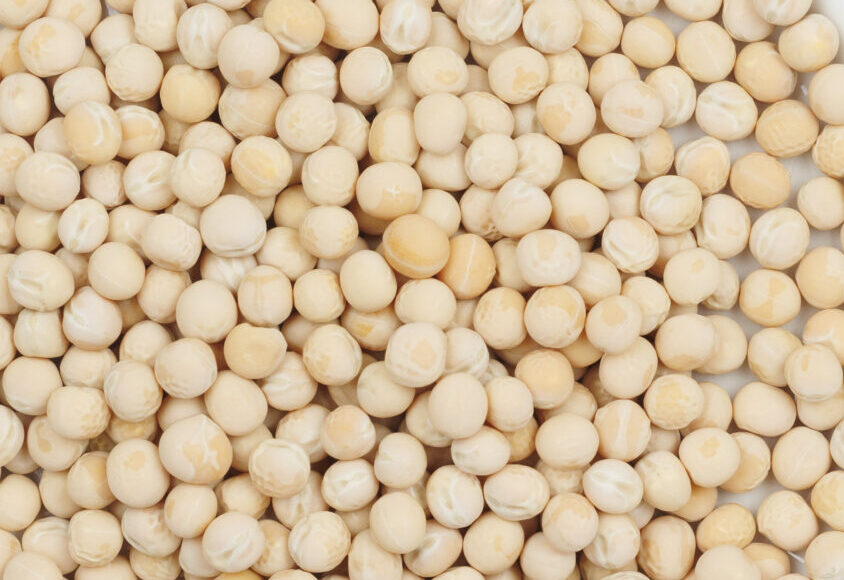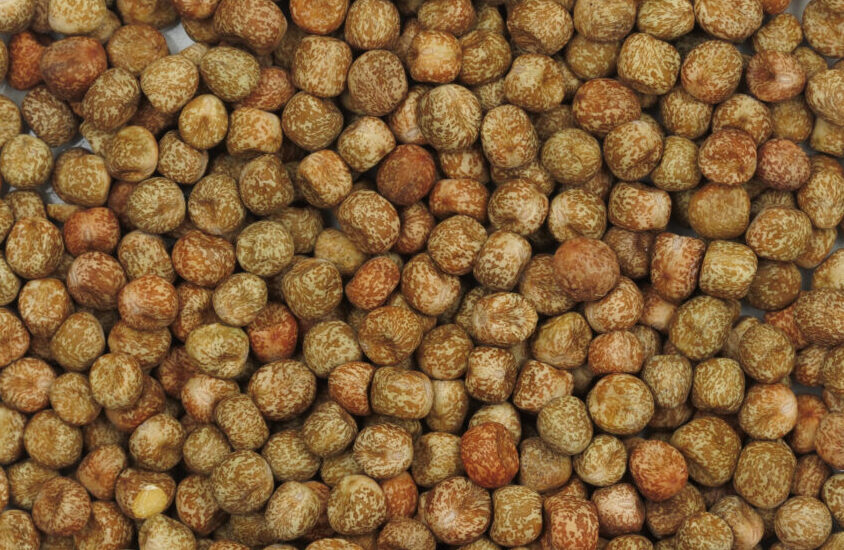Principal Investigator: Drs. Dengjin Bing and Jay Han
Institution: Agriculture and Agri-Food Canada (AAFC), Lacombe, Alta. (Dr. Bing) and Alberta Agriculture and Forestry (Dr. Han)
Prepared by: Nate Ort, M.Sc.
This project led by Drs. Dengjin Bing and Jay Han strived to develop improved field pea varieties and germplasm for production in Canada, and to evaluate the flavour, physicochemical, and functional characteristics in high protein field pea breeding lines.
Development of Conventional Field Pea Varieties and Germplasm
The overarching goal of this breeding program is to develop improved field pea varieties for production in Canada. Specifically, the objectives of this initiative are to identify elite parental breeding material, hybridize the identified parents, create recombinate progeny in segregating generations, select desired progenies, evaluate the selected progenies in the targeted growing environments, select candidate varieties according to the policies of variety registration and commercialization, and produce Breeder Seed according to the Canadian Food Inspection Agency’s (CFIA) pedigreed seed policy. The experimental designs and methods vary with the generation of the breeding program and with the targeted agronomic and plant physiological traits. The breeding material under development in this program are for developing improved breeding material for future breeding initiatives. All generations tested were grown at two sites in Lacombe, Alta. Five breeding lines were entered in the second-year test and eight lines into the first-year test in 2021 Western Canada Field Pea Cooperative Registration Trials at eleven sites in Alberta, Saskatchewan, and Manitoba. Two promising candidate varieties, one yellow pea and one green pea, were selected and presented to the 2022 Prairie Grain Development Committee (PGDC) Annual Meeting.
The most significant achievement in this reporting period is the release of the field pea variety AAC Planet to Canadian pulse producers. This variety is a high-yielding and powdery- mildew-resistant yellow pea licensed to SeedNet, Inc. in Alberta. As an essential part of commercialization and technology transfer, Breeder seed production was carried out on the AAFC Indian Head Farm. It is expected that certified seed of AAC Planet will be available to interested pea growers in the next few years.
Investigation of Seed Protein and Starch Concentration in Field Pea
This research was conducted at various stages within the breeding program, including advanced-generation yield test, preliminary yield tests, F7-generation selection, and F3-generation breeding line development. A strong negative relationship between seed yield and protein concentration was observed in the yield tests, moreover, when the seed protein concentration increased the pea seed yield declined. This is a well reported relationship in several field crops and these findings confirm it is necessary to seek out and select a balance between seed yield and protein concentration when developing new field pea varieties.
In the assessments of protein and starch content, and amino acid of field pea genotypes, significant variations were observed for each amino acid content among different pea genotypes; pea protein has high levels of four essential amino acids (lysine, leucine, valine, phenylalanine); and lysine content accounts for 7–8% in pea protein. These results are based on small sample size and additional studies are encouraged by the investigators to test and validate these findings.
Key Findings
- Commercial release of the variety AAC Planet, a high- yielding and powdery—mildew resistant yellow pea variety licensed to SeedNet, Inc. in Alberta.
- A strong negative relationship between seed yield and protein concentration was confirmed in the breeding material tested, a well reported relationship in many field crop species.

Publications
- Dengjin Bing and Don Beauchesne, 2021. AAC Delhi field pea. Canadian Journal of Plant Science. 20 August 2021 (Accepted)
- Dengjin Bing, Don Beauchesne, Richard Cuthbert, and Hamid Naeem. 2021. AAC Profit field pea. Canadian Journal of Plant Science. 20 August 2021 (Accepted)
- Zhan-Hui Lu, Yiting Lu, Elizabeth Donner, Qiang Liu, Dengjin Bing. 2021. Physicochemical and nutritional properties of starches from nine Canadian grown peas compared with six commercial starches. Legume Science. 2021;1–14. DOI: 10.1002/leg3.133
- Yu, B., Xiang, D, Mahfuz, H., Patterson, N., Bing, D. 2021. (Review) Understanding Starch Metabolism in Pea Seeds towards Tailoring Functionality for Value-Added Utilization. Int. J. Mol. Sci. 2021, 22, 8972.



